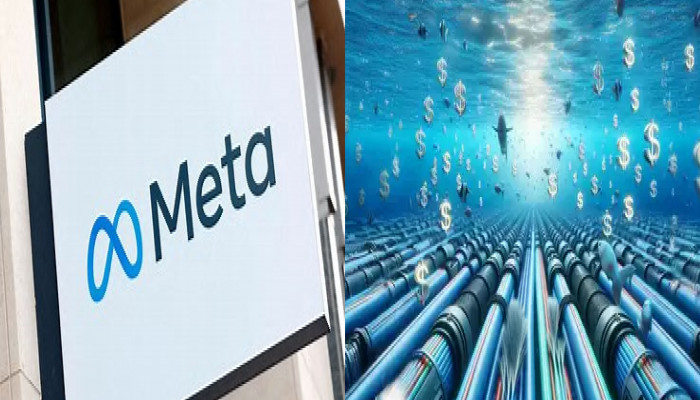Google, Meta invest billions in India’s submarine optic fibre infrastructure, spurs data competition with Jio, Airtel
- In Reports
- 06:38 PM, Dec 04, 2024
- Myind Staff
Global tech companies like Google and Meta are investing heavily in undersea fibre optic cables connecting to India. This move puts them in direct competition with major Indian data providers such as Reliance Jio, Bharti Airtel and Tata Communications, especially as data centre expansion is rapidly increasing.
Experts in the industry say that neutral infrastructure providers like Sify Technologies and Lightstorm are becoming more popular because they offer more affordable landing facilities compared to major telecom companies like Airtel and Tata Communications. According to sources close to the project, Google plans to launch its Blue-Raman Submarine Cable System in Mumbai in the first quarter of 2025. The Blue and Raman project, which costs $400 million and has a capacity of 218 terabits per second, also includes investment from the Italian company Sparkle. With this, Google's total investment in global subsea cables reaches 18.
One of Meta's objectives is to build a large undersea cable with a capacity of 500 Tbps, which will cost $10 billion over three years. India plays a significant role in Meta's cable routing strategy since it is a vital market for consumer and business AI. "The subsea industry is seeing a major resurgence - 107 new cables were built during 2016-20, representing $13.8 billion in value, with another $18 billion in subsea cable investments underway from 2021 to 2025," stated Vinay Nagpal, chief executive of InterGlobix LLC, a US-based consulting and advisory firm specialising in subsea networks. "India clearly stands at a vantage point to seize those opportunities."
Sources say that Meta's undersea cable may connect in Gujarat, where Reliance Industries is building India's largest AI data centre in Chennai, where a data centre is already operating through a joint venture with Reliance. A landing station is a small data centre that connects undersea cable networks to land-based infrastructure. Between October and March next year, Jio and Airtel plan to launch three major submarine cable projects: 2Africa Pearls, India-Asia-Express (IAX) and India-Europe-Express (IEX). These will increase current capacity by over four times.
According to TRAI reports, the global market for underwater communications cables is expected to expand at a rate of 7.2% annually, from $27.57 billion in 2023 to $40.58 billion by 2028. India's market is predicted to develop at the fastest rate in Asia Pacific, reaching $78.6 million by 2030. Security concerns, growing data centre activities in India and growing data sovereignty requirements are the main drivers of this rise. The competition is focused on India's lucrative market for undersea optical fibre cables, which are used for fast global data transmission. While Airtel and Tata Communications are the leaders in this field, Jio, though newer, is actively seeking opportunities as the demand for data grows. Submarine cable operations in India are restricted to particular businesses by government rules. The management and operation of cable landing stations (CLS) are restricted to those who possess internet service provider (ISP)-A and international long-distance (ILD) telecom licenses.







Comments